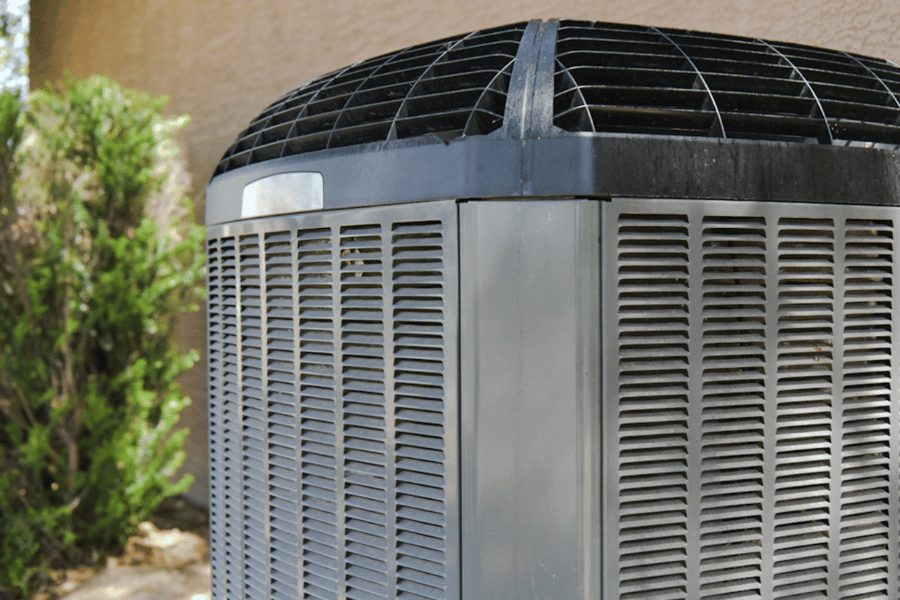Understanding HVAC System Lifespan: When to Repair or Replace
Your home’s HVAC system is a crucial component that ensures comfort throughout the year, providing warmth during the winter and cool air during the summer. However, like all mechanical systems, HVAC units have a finite lifespan.
Understanding when to repair or replace your HVAC system is essential for maintaining efficiency, comfort, and cost-effectiveness in your home.

The Typical Lifespan of HVAC Systems
The lifespan of an HVAC system can vary based on several factors, including the type of system, maintenance practices, and usage patterns. On average:
- Furnaces typically last 15-20 years.
- Air conditioners and heat pumps have an average lifespan of 15 years.
- Boilers can last 15-30 years, depending on the type and maintenance.
Factors Influencing HVAC Longevity
- Quality of Installation: Proper installation by a certified professional ensures that the system operates efficiently and reduces wear and tear.
- Maintenance: Regular maintenance, such as changing filters, cleaning coils, and inspecting ductwork, can extend the life of your HVAC system.
- Usage: Systems that run continuously or are subjected to extreme weather conditions may have a shorter lifespan.
- Quality of Components: Higher quality systems and parts often last longer and perform more reliably.
Signs It’s Time for a Repair
Routine repairs and maintenance are part of an HVAC system’s lifecycle. However, knowing when to repair instead of replace can save you money and prevent unnecessary stress. Here are some signs that a repair might be sufficient:
- Inconsistent Temperatures: If your system isn’t maintaining a consistent temperature, it may need a tune-up or minor repair.
- Unusual Noises: Banging, clanging, or grinding noises often indicate a part that needs repair.
- Increased Energy Bills: A sudden spike in your energy bills can signal that your HVAC system is working harder than it should, possibly due to worn-out components that need replacement.
- Frequent Cycling: If your system is turning on and off frequently, it could be a sign of a minor issue that a professional can address.
When to Consider Replacement
While repairs can fix many issues, there comes a time when replacing your HVAC system is more cost-effective and beneficial. Here are some indicators that it might be time for a new system:
- Age of the System: When your system is getting to the end of it’s lifespan it might be time to consider replacing the unit instead of repairing it.
- Frequent Repairs: If you find yourself calling for repairs frequently, those costs can quickly add up, making replacement a better option.
- Decreased Efficiency: Older systems tend to lose efficiency over time. Upgrading to a newer, more energy-efficient model can reduce your energy bills and improve home comfort.
- Major Component Failure: If a major component, like the compressor or heat exchanger, fails, it often makes more sense to replace the system rather than repair it.
Benefits of Replacing an Old HVAC System
- Improved Energy Efficiency: Newer models are more energy-efficient, which can significantly lower your utility bills.
- Enhanced Comfort: Modern systems offer better temperature control, quieter operation, and improved airflow.
- Environmental Impact: Upgrading to an energy-efficient model reduces your carbon footprint.
- Reliability: New systems are less likely to break down, providing peace of mind and consistent comfort.
Making the Right Decision
Deciding whether to repair or replace your HVAC system can be challenging. Here are a few steps to help make the process easier:
- Consult a Professional: A trusted HVAC technician can provide a thorough assessment of your system and recommend the best course of action.
- Cost Analysis: Compare the costs of repairs versus replacement. Consider not only the immediate costs but also long-term savings in energy efficiency and repair expenses.
- Evaluate Your Comfort: Consider how well your current system meets your comfort needs and whether a new system could improve your home’s overall environment.
Conclusion
Understanding the lifespan of your HVAC system and recognizing when to repair or replace it can save you time, money, and stress. Regular maintenance and professional assessments are key to making informed decisions that ensure your home remains comfortable and efficient throughout the year.
By staying proactive, you can enjoy the benefits of a well-functioning HVAC system and avoid unexpected breakdowns and expenses.
If you are experiencing a problem with your air conditioning or heating call us at 512-336-1431 to schedule an appointment. We’ll be glad to come out and take a look at the issue.
1431-183 A/C & Heating proudly serves Round Rock, Georgetown, Cedar Park, Pflugerville, Leander, Liberty Hill, and North Austin.
